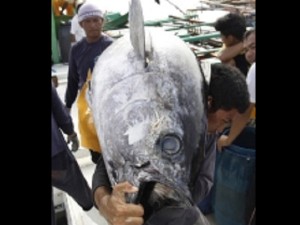
As Asians became more prosperous, they prefer to eat more “high-value” species, forcing fishermen to catch more of them even if it means using environmentally harmful and illegal methods, they said.
“Increased wealth, especially in Asia,” had raised demand for more expensive fish like certain groupers and tunas, said Jackie Alder, head of the marine coastal office of the UN Environment Program.
“They are no longer satisfied with anchovies,” she told reporters on the sidelines of a UN conference on oceans in the Philippine capital.
She warned that fish production had stabilized at 80 million tons in the 1980s and scientists believed that it would not go any higher.
“There is no doubt that changing lifestyles and eating habits are having an effect on resources,” said Jerker Tamelander, head of the UN Environment Program’s coral reef unit.
He cited the case of live groupers which are in such demand in Asia that fishermen use cyanide to stun them and catch them alive, even if this kills other fish and harms coral reefs.
Even then, many of these groupers die during transport across Asia, he warned.
“There is high mortality, high transport costs but also high returns.”
Depleting the stocks of high-value fish could also upset the balance of nature in coral reefs, possibly leading to their degradation, he added.